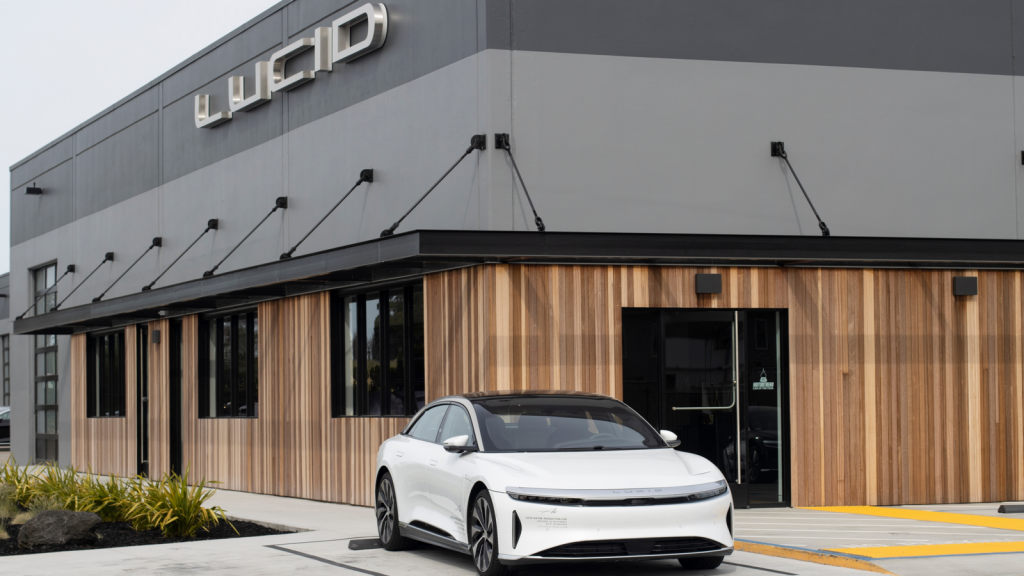Since late 2021, California-based electric vehicle (EV) manufacturer Lucid Group (NASDAQ:LCID) has lost favor on Wall Street. Yet, a reduced share price is an opportunity to own a stake in a fast-growing EV startup.
Lucid’s cars are known to be sleek, luxurious and powerful. Plus, they’re fast charging and have a comparatively long range per charge. Still, some investors aren’t yet convinced that Lucid Group belongs on their watch list.
As we’ll discover, Lucid’s recent financial stats are surprisingly positive and indicate strong demand for the company’s EVs. Furthermore, Lucid Group’s vision is global, and the company’s arrangement with one particular country could provide a significant revenue source.
So, what should you do with LCID stock? Well, let’s dive in and take a closer look.
| LCID | Lucid Group | $19.59 |
What’s Happening with LCID Stock?
LCID stock was $55 per share back in late 2021, but those days are in the rear-view mirror now. Redburn analyst Charles Coldicott issued a $39 price target for the stock earlier this year, but the bulls should target $30 in the near term before moving on to more ambitious objectives.
If Lucid Group is in growth mode, then perhaps its shares deserve to be re-rated higher this year. As it turns out, Lucid’s financials do, indeed, suggest that the company is on the right track.
As of May 5, Lucid Group reported having more than 30,000 customer reservations. This figure reflects potential sales of $2.9 billion; Not too shabby. Also, Lucid reiterated the company’s ambitious 2022 production volume outlook of 12,000 to 14,000 vehicles.
On top of all that, Lucid Group and ended 2022’s first quarter with roughly $5.4 billion in cash on hand. This, according to the company, is expected to fund the Lucid Group well into 2023.
Supporting a Green Vision
Increasingly, nations are shifting towards a cleaner, carbon-neutral future. This includes Saudi Arabia, which is oil-rich but still has environmental, social and governance (ESG) investing goals.
Recognizing this, Lucid Group forged a 10-year deal with the government of Saudi Arabia, in which that government will purchase up to 100,000 vehicles from Lucid over the 10-year period. This agreement is “part of Saudi Vision 2030 and Saudi Green Initiative to transform the Kingdom via sustainable transportation and technologies,” according to the press release.
Additionally, there’s a follow-up to this story, as Lucid Group has partnered with multiple entities in Saudi Arabia in order to establish a production facility there. The production factory is anticipated to have a capacity of 155,000 electric vehicles per year. Impressively, this could increase Lucid’s global production capacity “mid-decade to 500,000 EVs per year.”
Overall, it certainly sounds like a win-win scenario. For Saudi Arabia, working with Lucid Motors can bring the nation closer to its ESG goals. For Lucid, the arrangement should bolster the company’s bottom line in the long term.
What You Can Do Now
Lucid Group’s growth as a company involves a strong vision for ESG adoption — not just locally, but globally as well. And given Lucid’s ramp-up in customer reservations and the high-potential deal with Saudi Arabia, investors might consider adding LCID stock to their clean-energy portfolios.
Thus, keep a close eye on LCID stock moving forward.
On the date of publication, neither Louis Navellier nor the InvestorPlace Research Staff member primarily responsible for this article held (either directly or indirectly) any positions in the securities mentioned in this article.
